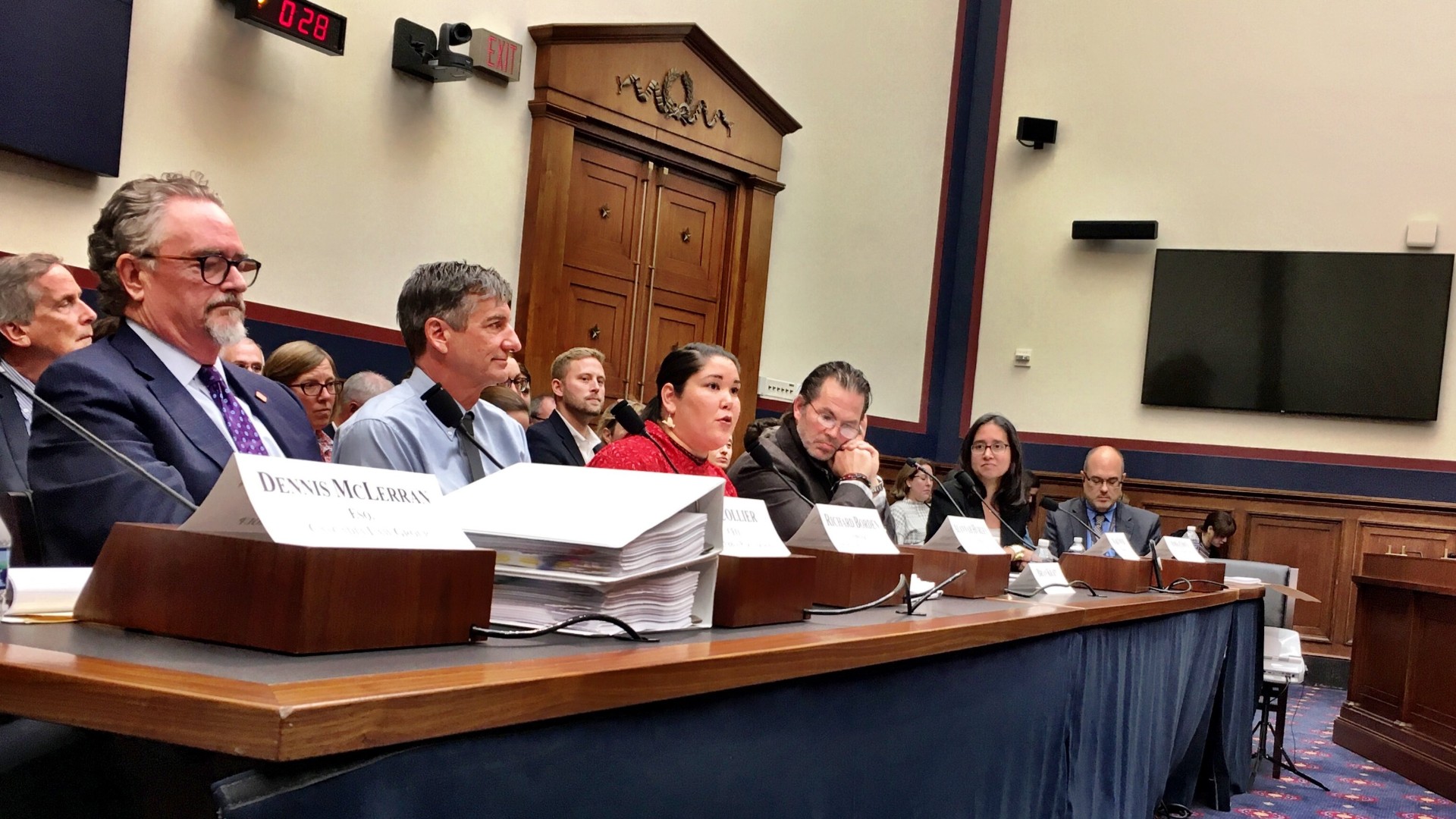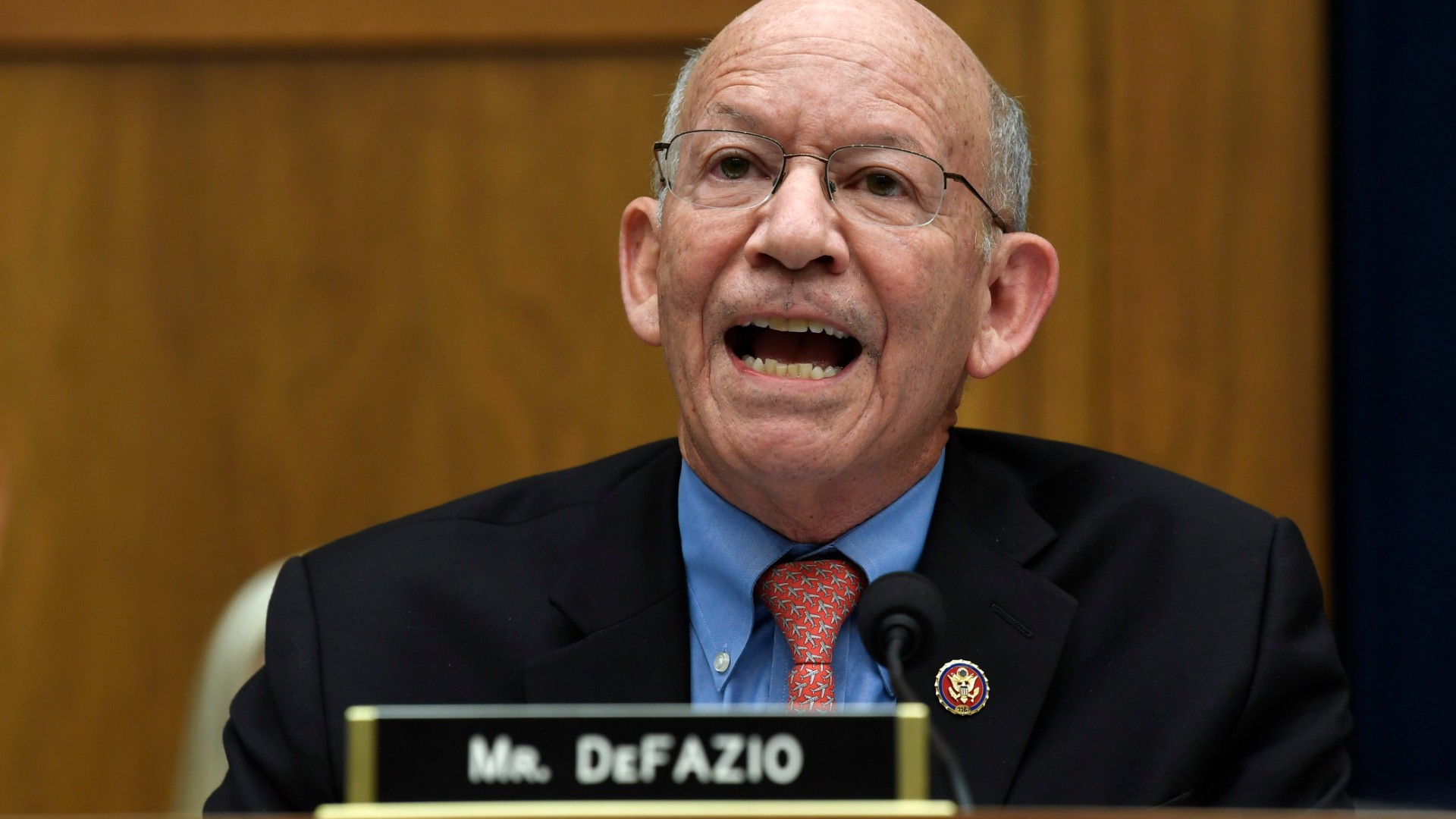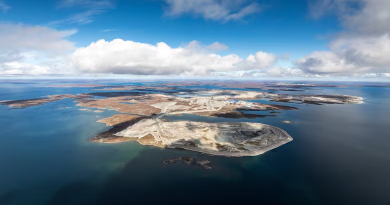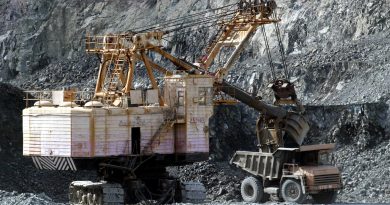Fight over contested Alaska mine project aired at US House hearing

For Alaskans opposed to the Pebble Mine, a hearing in the U.S. House Wednesday was an opportunity to raise the issue on a national stage, and to ask Congress to stop the proposed gold and copper mine upstream from Bristol Bay, in Southwest Alaska.
But Alaska Congressman Don Young made it clear he didn’t think much of the hearing. He said he’s neither for nor against the mine, but believes in science-based decision making. He looked across the room at the seven people at the witness table and complained that not one of them was a scientist.
“You’re not listening to the science,” Young said. “You’re saying a lot of what ifs. Can and cannot. Should we or shouldn’t we. And this committee has a responsibility to review those that are directly involved. Not those that may be affected about it. It’s about science.”
At the witness table, Richard Borden repressed an urge to raise his hand.
“I’m a geologist and environmental scientist and manager with over 30 years of experience in the mining and consulting industries,” Borden testified minutes later, “including 23 years with Rio Tinto.”
As an employee of a multinational mining giant, Borden worked on permits for mines all over the world. But Borden proved to be a compelling witness against the Pebble project. He told the committee it would take at least $40 million a year to treat the water flow from the mine site, and he said the obligation would continue long after the mine closed, maybe in perpetuity.
“There’s mines in Spain that that the Romans mined that are still producing acid-rock drainage,” he said. “So these problems can persist into the post-historical period, if you will.”
Smaller mine not viable
By his calculations, the smaller version of a mine Pebble is now pressing for would lose billions of dollars. Borden says it’s a Trojan horse – a little mine that will have to be vastly expanded later for the investment to pencil out.
The hearing produced sparks and several impassioned speeches but no specific legislation.
Pebble CEO Tom Collier was the only witness for the mine. He insists the smaller mine is safe and financially viable. Transportation Committee Chairman Peter DeFazio challenged him on that.

“I have a question Mr. Collier: Have you submitted a document on this much smaller mine showing it’s financially viable to the Corps of Engineers … . Yes or no?” he asked.
“No, but if the mine’s not financially viable -” Collier said, before DeFazio cut him off.
“Sir, I asked you, ‘Yes or no,’” DeFazio shouted. “You answered, ‘No.’”
Later, Collier said the project would have to put up a bond to cover its obligations. As for the finances:
“If it’s not financially viable, it’s not going to be built,” Collier said. “And if it’s not going to be built, what the hell are we doing here today?”
Collier also passionately denied allegations this week by an environmental group that people associated with Pebble’s parent corporation used insider information to buy company stock at an opportune moment this summer.
“There’s no factual basis whatsoever for that claim,” he said.
Indigenous people worried
Alannah Hurley, executive director of United Tribes of Bristol Bay, was one of the anti-mine witnesses.
“If Pebble is developed, there is no doubt it will forever change who I am, who my people are, where I come from,’ she said. “And it will rob our children’s children of their right to continue being Native people as we have for thousands of years in Bristol Bay.”
Collier tilted back in his chair and looked at the ceiling as Hurley spoke. She ended with a plea.
“I’m just so thankful that we are being heard, because the Corps is not listening,” Hurley said. “They have proved they are not going to listen, and we really need Congress to intervene and help the people of Bristol Bay.”
Focus on the Corps of Engineers
DeFazio, an Oregon Democrat, chairs a committee with jurisdiction over the Corps of Engineers, and he wants to help the mine opponents.
“I’m not certain what legislative path we could take,” he said. “What I first want is a proper review and a proper comment period, and I don’t believe the Corps is doing either of those things. And I’m going to push them very hard to push back, even if Donald Trump is pushing on the other side.”
David Hobbie, Alaska regulatory chief for the Corps, said he’s heard accusations that the Trump administration has issued some kind of mandate, but he said he is under no orders to grant a permit.
“I have not heard anything from anyone in the administration telling me, or even asking me to do something different (or) special,” he said Wednesday, during a monthly call to update reporters about the permit application.
Hobbie said the Corps is working through agency comments on the draft environmental report for the mine and expects to have a preliminary final impact statement in January.
Related stories from around the North:
Canada: Moody’s downgrades rating on $550M bond owed by Northern Canada mines owner, CBC News
Finland: Mining companies to pay higher deposits for environmental damage in Finland, Yle News
Greenland: Greenland issues new exploration, prospecting licences to Anglo American, Eye on the Arctic
Norway: Minister downplays environmental impact of planned mine in Arctic Norway, The Independent Barents Observer
Russia: Moscow supports Vostok Coal’s expansion into protected Arctic tundra, The Independent Barents Observer
Sweden: Iron mine in northern Sweden to restart production, The Independent Barents Observer
United States: Company behind contested Alaska mine project pays $1M to hire Washington lobbyists, Alaska Public Media



